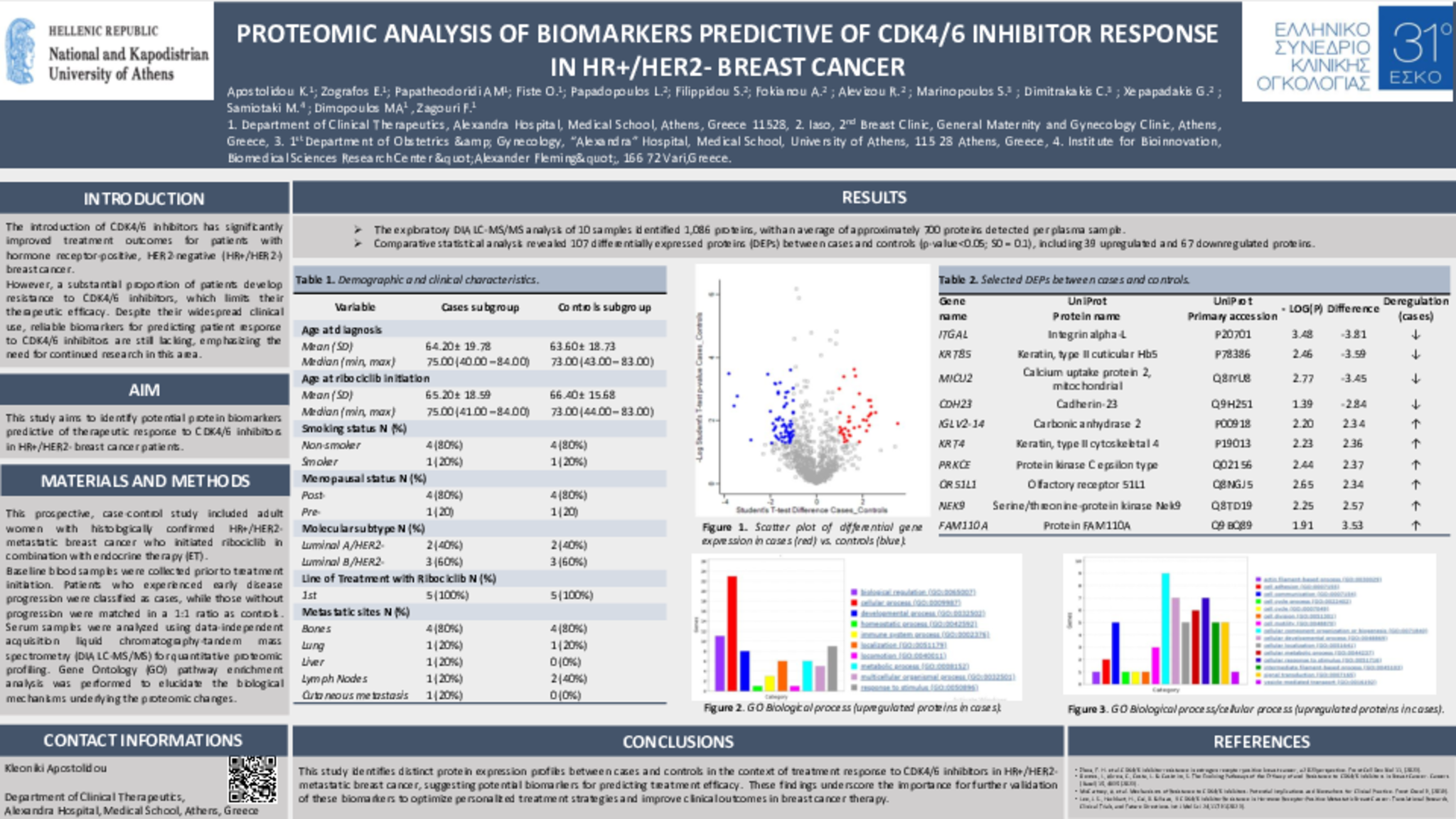Introduction
The introduction of CDK4/6 inhibitors has significantly improved treatment outcomes for patients with hormone receptor-positive, HER2-negative (HR+/HER2-) breast cancer. However, a substantial proportion of patients develop resistance to CDK4/6 inhibitors, which limits their therapeutic efficacy. Despite their widespread clinical use, reliable biomarkers for predicting patient response to CDK4/6 inhibitors are still lacking, emphasizing the need for continued research in this area.
Aim
This study aims to identify potential protein biomarkers predictive of therapeutic response to CDK4/6 inhibitors in HR+/HER2- breast cancer patients.
Methods
This prospective, case-control study included adult women with histologically confirmed HR+/HER2- metastatic breast cancer who initiated ribociclib in combination with endocrine therapy (ET). Baseline blood samples were collected prior to treatment initiation. Patients who experienced early disease progression were classified as cases, while those without progression were matched in a 1:1 ratio as controls. Serum samples were analyzed using data-independent acquisition liquid chromatography-tandem mass spectrometry (DIA LC-MS/MS) for quantitative proteomic profiling. Gene Ontology (GO) pathway enrichment analysis was performed to elucidate the biological mechanisms underlying the proteomic changes.
Results
The exploratory DIA LC-MS/MS analysis of 10 samples identified 1,086 proteins, with an average of approximately 700 proteins detected per plasma sample. Comparative statistical analysis revealed 107 differentially expressed proteins between cases and controls (p-value < 0.05; S0 = 0.1), including 39 upregulated and 67 downregulated proteins. Notably, proteins encoded by FAM110A, NEK9, OR51L1, and PRKCE exhibited increased expression in cases, while those encoded by CDH23, MICU2, KRT85, and ITGAL were upregulated in controls.
Conclusions
This study identifies distinct protein expression profiles between cases and controls in the context of treatment response to CDK4/6 inhibitors in HR+/HER2- metastatic breast cancer, suggesting potential biomarkers for predicting treatment efficacy. These findings underscore the importance for further validation of these biomarkers to optimize personalized treatment strategies and improve clinical outcomes in breast cancer therapy.
- 12 προβολές




